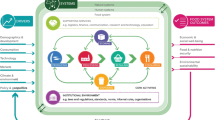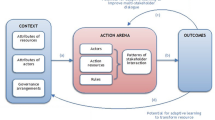Abstract
Improved cookstoves have been identified in Mexico as a key opportunity to advance sustainable local development priorities in disadvantaged regions while mitigating climate change. This paper reviews the Patsari Cookstove Project initiated in 2003 by an NGO, Interdisciplinary Group on Appropriate Rural Technology (GIRA). The project applied an interdisciplinary and participative user-centered approach to disseminate improved cookstoves in rural Mexico, with a special focus on indigenous and poor rural communities. To date, GIRA and the Patsari Network have disseminated thousands of stoves using a “training to trainers” model. Benefits from the project include tangible improvements in users’ health, as well as savings in time and money expended on fuelwood procurement and use. The project has also documented substantive environmental benefits from significant mitigation of greenhouse gas (GHG) emissions associated with traditional open fires. To sustain scaling up efforts over the long-term, two networks have been created: The Patsari Network, which includes several organizations promoting Patsari stoves for household users, and the Tsiri Network, which supports local food security and the empowerment of indigenous women through the promotion of institutional cookstoves. Through appropriately designed and implemented local interventions, the project demonstrates that the goals of advancing sustainable local development in rural areas and climate change mitigation may not be contradictory, and may in fact reinforce one another.




Similar content being viewed by others
Notes
According to the classification used by CDI, a municipality is considered indigenous when its indigenous population represents more that 40 % of its total population. It is estimated that 60 % of the indigenous population (approximately 6million people) live in indigenous municipalities and the rest live in predominantly “mestizo” municipalities (CDI 2006).
According to data gathered by FAO (Food and Agriculture Organization), 45 % of Mexico’s caloric consumption comes from corn-based food. Mexico is the top tortilla consumer worldwide, with an annual consumption volume close to 22 million tons of tortillas, of which 6.9 million tons are produced using traditional methods. Tortillas provide energy due to their high carbohydrate content, and are also rich in calcium, potassium, and phosphorus. Moreover, they provide fiber, protein, and some vitamins, mainly A, thiamine, riboflavin, and niacin. The economic importance of corn and tortillas is undeniable.
These are not the same as tortillerias; commercial establishments that produce tortillas using industrial machines.
The factors that directly impact the mitigation potential of improved cookstoves are: annual household fuelwood consumption; GHG emission factors; the degree of renewability of fuelwood use; and continuous daily use of the stove that ultimately determines whether its impacts are sustained in the long run.
References
Anenberg SC, Schwartz J, ShindellD AM, Faluvegi G, Klimont Z, Janssens-Maenhout G, Pozzoli L, Van Dingenen R, Vignati E, Emberson L, Muller NZ, West JJ, Williams M, Demkine V, Hicks WK, Kuylenstierna J, Raes F, Ramanathan V (2012) Global air quality and health co-benefits of mitigating near-term climate change through methane and black carbon emission controls. Environ Health Perspect 120(6):831–839
Armendariz C, Edwards R, Johnson M, Zuk M, Rojas L, Díaz-Jiménez R, Riojas H, Masera O (2008) Reduction in personal exposures to particulate matter and carbon monoxide as a result of the installation of a Patsari improved cook stove in Michoacan Mexico. Indoor Air 18:2
Astier M (2004) Estudio sistémico de la elaboración de tortilla tradicional: su impacto en el uso de los recursos naturales en la Regíón de Pátzcuaro-Zirahuén. GIRA, A.C., Michoacan
Astier M, Barrera N (2009) Small tortilla enterprises a key issue for maize diversity conservation. American Association of Geographers Annual Meeting. Paper Session: Geographic Contributions to Agrobiodiversity Conservation III. 3/24/09
Bailis R, Berrueta V, Chengappa C, Dutta K, Edwards R, Masera O, Still D, Smith K (2007) Performance testing for monitoring improved biomass stove interventions: experiences of the Household Energy and Health Project. Energy Sustain Dev 11(2):57–70
Bailis R, Drigo R, Ghilardi A, Masera O (2015) The carbon footprint of traditional woodfuels. Nat Clim Chang. doi:10.1038/NCLIMATE2491
Bates L, Bruce N, Theuri D, Owalla H, Amatya P, Malla MB, Hood A (2005) What should we be doing about kitchen smoke? Energy Sustain Dev 9(1):7–15
Berrueta V, Magallanes AB (2012) Leña para uso doméstico en comunidades P’urhépechas de Michoacán: acceso, utilización e implicaciones sociales. En: Argueta A, Gómez Salazar M, Navia J (Coords) Conocimiento tradicional, innovación y reapropiación social. Editorial Siglo XXI, Mexico
Berrueta V, Edwards R, Masera O (2008) Energy performance of woodburning cookstoves in Michoacán Mexico. Renew Energy 33:5
Bruce N, Perez-Padilla R, Albalak R (2000) Indoor air pollution in developing countries: a major environmental and public health challenge. Bull World Health Organ 78:1078–1092
CDI, Comisión Nacional para el desarrollo de los pueblos indígenas (2006) Regiones indígenas de México, http://www.cdi.gob.mx/regiones/regiones_indigenas_cdi.pdf
Chum H, Faaij A, Moreira J, Berndes G, Dhamija P, Dong H, Gabrielle B, Eng AG, Lucht W, Mapako M, Masera O, McIntyre T, Minowa T, Pingoud K (2011) Bioenergy, in IPCC special report on renewable energy sources and climate change mitigation. In: Edenhofer O, Pichs-Madruga R, Sokona Y, Seyboth K, Matschoss P, Kadner S, Zwickel T, Eickemeier P, Hansen G, Schlömer S, von Stechow C (eds) Cambridge University Press, Cambridge
García-Frapolli E, Schilmann A, Berrueta V, Riojas H, Edwards R, Johnson M, Guevara-Sanginés A, Armendariz C, Masera O (2010) Beyond fuelwood savings: valuing the economic benefits of introducing improved biomass cookstoves in the Purépecha region of Mexico. Ecol Econ 69:12
Ghilardi A, Guerrero G, Masera O (2009) A GIS-based methodology for high lighting fuelwood supply-demand balances at the local level: a case study for central Mexico. Biomass Bioenergy 33:957–972
Gold Standard (2014) Public call for stakeholder comments: the gold standard foundation’s proposed expansion of scope to certify emission reductions from black carbon. Gold Standard, UK
INDC-México, Intended Nationally Determined Contribution Mexico (2015) México, Gobierno de la Republica, marzo 2015 http://www4.unfccc.int/submissions/INDC/Published%20Documents/Mexico/1/MEXICO%20INDC%2003.30.2015.pdf
Islas J, Manzini F, Masera O (2007) A prospective study of bioenergy use in Mexico. Energy 32:2306–2330
Johnson M, Edwards R, Alatorre-Frenk C, Masera O (2008) In-field greenhouse gas emissions from cookstoves in rural Mexican households. Atmos Environ 42(6):1206–1222
Johnson M, Edwards R, Ghilardi A, Berrueta V, Gillen D, Alatorre-Frenk C, Masera O (2009a) Quantifcation of carbon savings from improved biomass cookstove projects. Environ Sci Technol 43(7):2456–2462
Johnson T, Alatorre C, Romo Z, Liu F (2009b) Low-carbon development for Mexico. World Bank, Washington
Lazos E (2014) Consideraciones socioeconómicas y culturales en la controvertida introducción del maíz transgénico: el caso de Tlaxcala. Sociológica 29(83):1–20
Lerner AM, Appendini K (2011) Dimensions of Peri-Urban Maize production in the Toluca-Atlacomulco valley, Mexico. J Lat Am Geogr 10(2):87–106
Lerner AM, Eakin H, Sweeney S (2013) Understanding peri-urban maize production through an examination of household livelihoods in the Toluca Metropolitan area. Mex J Rural Stud 30:50–63
Lim S et al (2013) A comparative risk assessment of burden of disease and injury attributable to 67 risk factors and risk factor clusters in 21 regions, 1990–2010: a systematic analysis for the Global Burden of Disease Study 2010. Lancet 380(9859):2224–2260
Magallanes A (2006) Estudio de Percepciones sobre el Cambio de Vida a Partir del Uso de Estufas Mejoradas, internal report. GIRA, A.C., Michoacan
Masera O, Saatkamp BD, Kammen D (2000) From linear fuel switching to multiple cooking strategies: a critique and alternative to the energy ladder model. World Dev 28(12):2083–2103
Masera O, Guerrero G, Ghilardi A, Velázquez A, Mas J, Ordóñez M, Drigo R, Trossero MA (2004) Fuelwood “Hot Spots” in México: a case study using WISDOM – Woodfuel Integrated Supply-Demand Overview Mapping. Wood Energy Programme – FAO, Rome
Masera O, Ghilardi A, Guerrero G, Velázquez A, Mas J, Ordóñez M, Drigo R, Trossero M (2005a) Fuelwood “hot spots” in Mexico: A case study using WISDOM. FAO Reports, Wood Energy Peogram, Forest Products Division, FAO, Rome
Masera O, Díaz-Jiménez R, Berrueta V (2005b) From cookstoves to cooking systems: the integrated program on sustainable household energy use in Mexico. Energy Sustain Dev 9(1):25–36
Masera O, Edwards R, Armendáriz C, Berrueta V, Johnson M, Rojas L, Riojas H (2007) Impact of Patsari improved cookstoves on indoor air quality in Michoacan, Mexico. Energy Sustain Dev 11:45–56
Masera-Astier OX, Astier M (2014) La Red Tsiri: una experiencia de sistemas alimentarios sustentables. LEISA Rev Agroecología 30(1):22–23
Orozco-Ramírez, Q. Barrera, N. Astier, M, Masera O (2010) El sistema maíz-tortilla en el estado de Michoacán. En: Seefoó Luján JJ, Keilbach NM (Editores) Ciencia y paciencia campesina. El maíz en Michoacán. COLMICH, Gobierno del Estado de Michoacán. pp.119–136 y 287
Pilcher J (1998) Que Vivan Los Tamales! Food and the making of the Mexican identity. University of New Mexico, Albuquerque
Pine K, Edwards R, Masera O, Schilmann A, Riojas-Rodriguez R (2011) Adoption and use of improved biomass stoves in rural Mexico. Energy Sustain Dev 15:176–183
Preibisch KL, Rivera Herrejón G, Wiggins SL (2002) Defending food security in a free-market economy: the gendered dimensions of restructuring in rural Mexico. Human Organ 61:68–79
Ramanathan V, Carmichael G (2008) Global and regional climate changes due to black carbón. Nat Geosci 1:221–227
Riojas H, Romieu I, Marron-Mares T, Rodríguez-Dozal S, Masera O (2006) Health impact assessment due the introduction of improved stoves in Michoacan, Mexico, International Conference, Paris, September 2–6, Conference Abstracts Supplement, Epidemiology, 17(6) Supplement, pp. S226-S227
Roden CA, Bond T, Conway S, Osorto A, MacCarty N, Still D (2009) Laboratory and field investigations of particulate and carbon monoxide emissions from traditional and improved cookstoves. Atmos Environ 43(6):1170–1181
Romieu I, Riojas-Rodriguez H, Marron-Mares AT, Schilmann A, Perez-Padilla R, Masera O (2009) Improved biomass stove intervention in rural Mexico: impact on the respiratory health of women. Am J Respir Crit Care Med 180(7):649–656
Serrano-Medrano M, Arias-Chalico T, Ghilardi A, Masera O (2014) Spatial and temporal projection of fuelwood and charcoal consumption in Mexico. Energy Sustain Dev 19:39–46
Smith K (2003) Indoor air pollution and acute respiratory infections. Indian Pediatric 40(9):815–819
Troncoso K, Castillo A, Masera O, Merino L (2007) Social perceptions about a technological innovation for fuelwood cooking: case study in rural Mexico. Energy Policy 35(5):2799–2810
World Development Report (2005) A better investment climate for everyone. The World Bank and Oxford University Press, New York, NY
Zuk M, Rojas L, Blanco S, Serrano P, Cruz J, Angeles F, Tzintzun G, Armendariz C, Edwards RD, Johnson M (2007) The impact of improved wood-burning stoves on fine particulate matter concentrations in rural Mexican homes. Expo Sci Environ Epidemiol 17:224–232
Acknowledgments
Our gratitude to the families from the Meseta Purépecha who opened their homes to us. Funding was provided by SEDESOL-CONACYT under the project 2009-119143, FOMIX-CONACYT under the project FMSLP-2013-C03-221387 and by UNAM-PAPIIT under the project IT101512.
Author information
Authors and Affiliations
Corresponding author
Additional information
“Climate Change Mitigation and Adaptation with Local Communities and Indigenous Peoples” edited by Kirsty Galloway McLean, Ameyali Ramos Castillo, Edwin Castellanos, and Aqqaluk Lynge.
Electronic supplementary material
Below is the link to the electronic supplementary material.
ESM 1
(DOCX 28 kb)
Rights and permissions
About this article
Cite this article
Berrueta, V.M., Serrano-Medrano, M., García-Bustamante, C. et al. Promoting sustainable local development of rural communities and mitigating climate change: the case of Mexico’s Patsari improved cookstove project. Climatic Change 140, 63–77 (2017). https://doi.org/10.1007/s10584-015-1523-y
Received:
Accepted:
Published:
Issue Date:
DOI: https://doi.org/10.1007/s10584-015-1523-y




